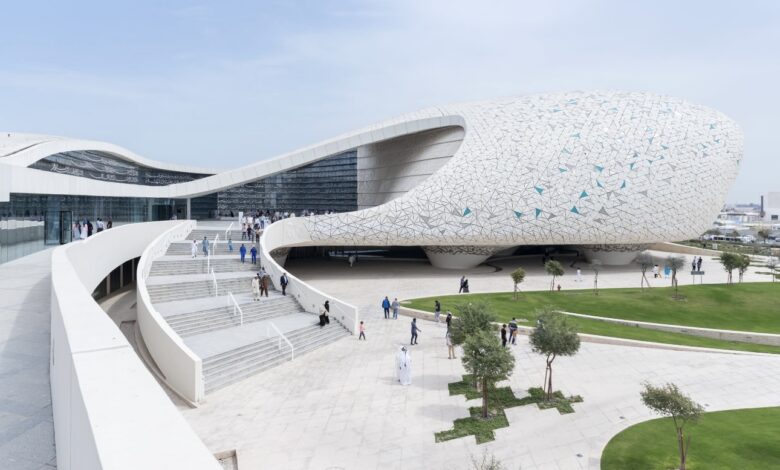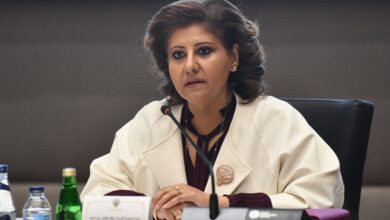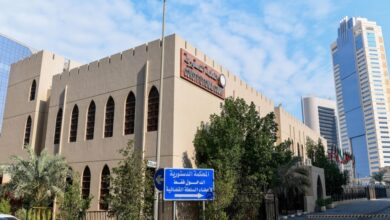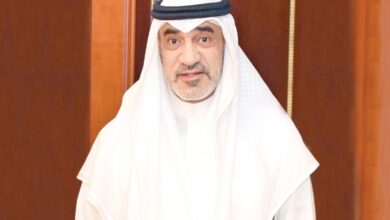The Talent Engine: Unlocking Kuwait’s Youth Potential for a Green and Digital Future


By Sarah Al Sabah
Special to The Times Kuwait
In a highly competitive and dynamic region, Kuwait stands at a critical juncture. With Vision 2035 outlining the roadmap to a diversified, innovation-led economy, one foundational question must be answered: Are we preparing our people to lead that future or merely to follow it?
The reality is sobering. While Kuwait boasts one of the youngest populations in the Gulf with 25 percent under the age of 25, our workforce remains under activated, under-skilled for the demands of the global green and digital economy. Moreover, we are currently disconnected from fast growing industries that are shaping tomorrow’s world.

But what if Kuwait could turn this demographic challenge into its greatest competitive advantage?
Economic Zones as Engines of Talent, Not Just Trade: With the activation of Na’ayem and Nuwaiseeb economic zones under the public-private partnership (PPP) framework, Kuwait has a generational opportunity to do more than build infrastructure. Kuwait can build human capital ecosystems embedded within these zones.
Imagine zones that are more than just houses for factories or warehouses. Imagine living laboratories of innovation, where young Kuwaitis learn, experiment, and lead in sectors like clean manufacturing, AI-driven logistics, energy transition technologies, and digital finance. This is an opportunity for the youth to co-create their environment and transform it into a dynamic future-ready economic ecosystem.
To do this, Kuwait must reimagine workforce development not as an isolated policy, but as a national strategy embedded within economic transformation.
A Vision for Kuwait’s Talent Advantage: We propose the launch of the Kuwait Future Skills Accelerator (KFSA), a nationally coordinated, zone-integrated initiative that merges:
- Technical academies and digital boot-camps within Na’ayem and Nuwaiseeb, focused on climate-tech, advanced manufacturing, renewable energy systems, AI, and digital supply chain management.
- Industry-integrated apprenticeships co-designed with international firms operating in the zones, allowing young Kuwaitis to ‘learn by doing’ alongside global experts.
- Micro-credentialing programs offered in partnership with global ed-tech platforms to allow flexible, stackable qualifications in emerging skills.
- Youth-led sustainability challenges and startup incubators to foster entrepreneurship and purpose-driven innovation.
This model would not only enhance employability, Kuwait Future Skills Accelerator (KFSA) would create value for Kuwait’s economy by anchoring high-skill industries locally and exporting talent globally.

Why It Matters Now: Across the GCC, Saudi Arabia is investing heavily in digital skilling via programs like Future Skills; the UAE is training a generation of AI and coding experts through its Coders HQ initiative; and Qatar is expanding innovation-based education through initiatives like Qatar Foundation’s Education City, bridging academia with future industries. These nations understand that the next oil is talent.
Kuwait must move faster. The goal is not just to catch up, but to leap ahead.
If we continue to rely on traditional education pipelines and outdated employment pathways, we risk building zones full of infrastructure, but empty of innovation.
Call to Action: The Ministry of Education, Ministry of Higher Education, KDIPA, and KAPP must work in collaboration with private sector champions to embed Kuwait Future Skills Accelerator (KFSA) programs within the economic zones from the planning stage.
Kuwaiti universities and technical institutes should be incentivized to create customized curriculums aligned with zone sectoral priorities, while private partners offer hands-on mentorship and job pathways. This is not just a program. Embedding KFSA programs is a national competitiveness strategy.
From Talent Gap to Talent Edge: The green and digital transitions underway globally will reshape economies and power structures. Kuwait has the capital, the infrastructure, and now, with Vision 2035/40 and the PPP zone activations. Kuwait has the policy platform to succeed. The only missing piece is the activation of our people.
Let us move with purpose. Let us build the talent engine Kuwait needs and the world deserves.
Editor’s Note: This op-ed explores how aligning Kuwait’s Vision 2035 with environmental leadership offers a strategic pathway for economic diversification, societal well-being, and global competitiveness. It emphasizes the critical role of Generation Z (Kuwait’s largest youth cohort) in shaping a sustainable, digital, and diversified economy. By connecting infrastructure, governance, human capital, and global positioning with environmental innovation, the article provides a call to action for policymakers, private sector leaders, and citizens to build a Kuwait that is prosperous, resilient, and future-ready.












